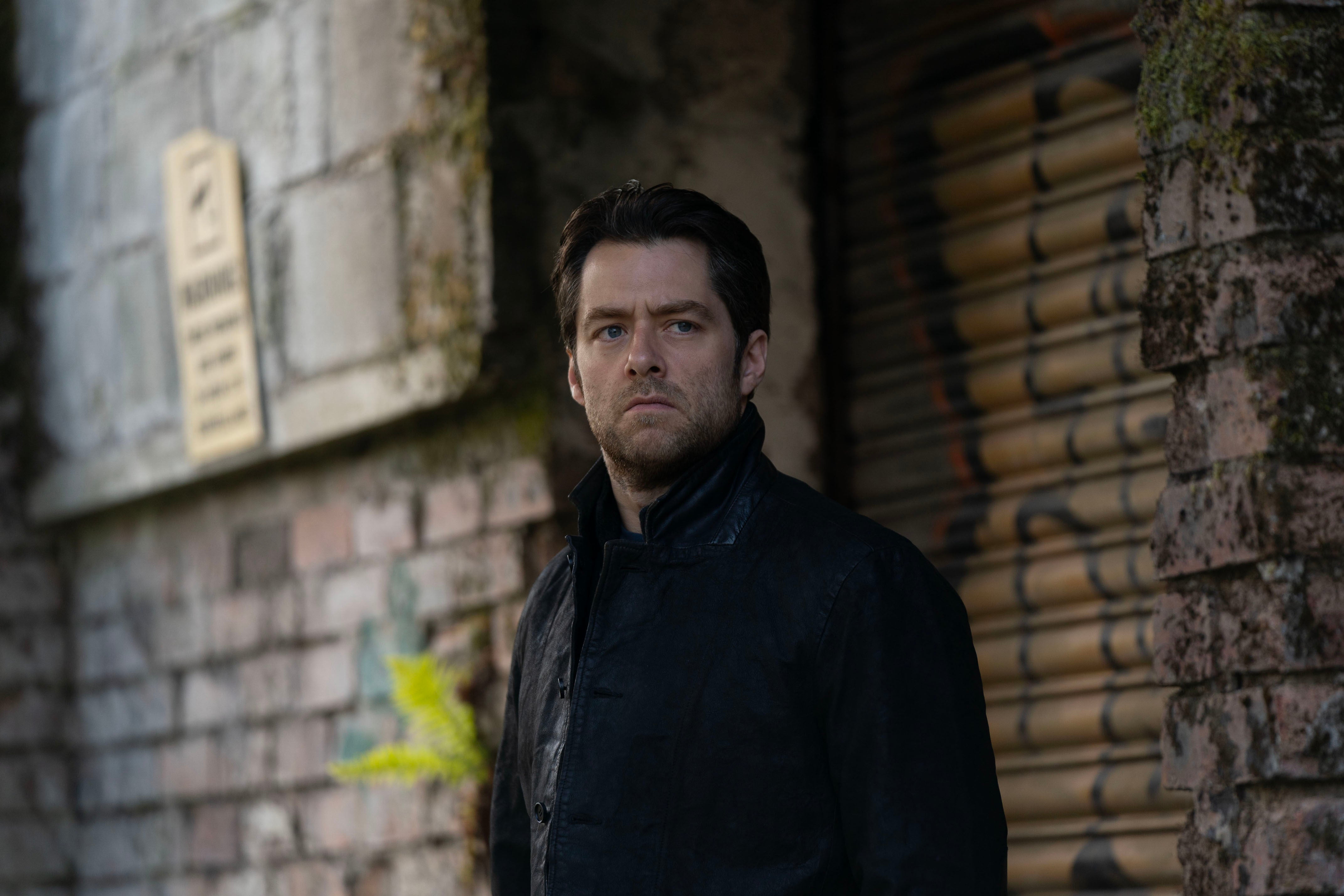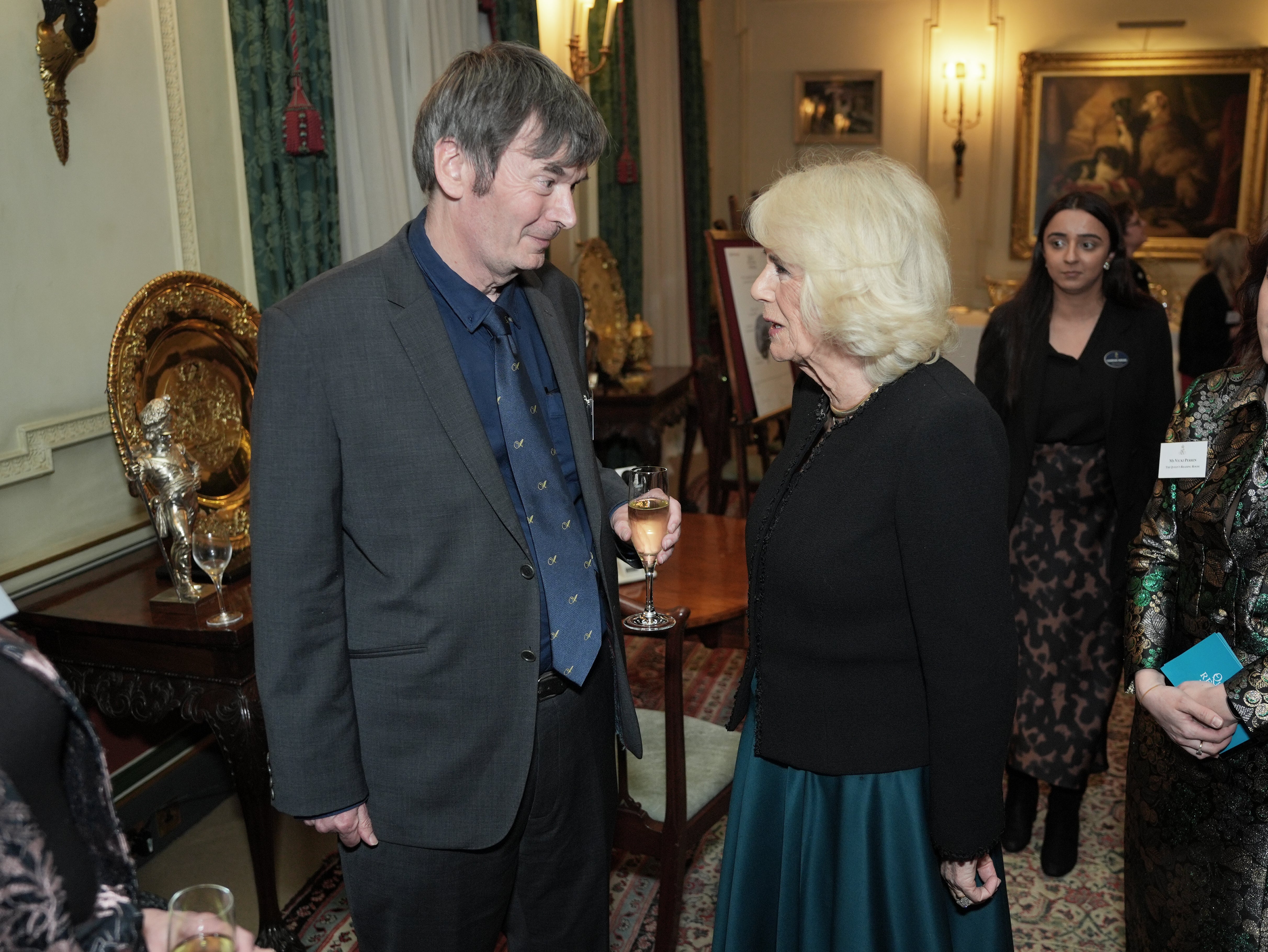Ian Rankin on 30 years of Rebus: ‘Trust me, I’ve tried to kill him off many times’
The bestselling Scottish crime author thought he’d said goodbye to his hard-knuckled Edinburgh policeman, but readers were having none of it. He tells Nick Duerden about a lifetime of trying to outrun his iconic protagonist (who has sometimes felt more like his therapist)


Back in the mid-1980s, a recently graduated twentysomething Ian Rankin was harbouring modest ambitions to become a lecturer. But he envisioned having a sideline, too. “I was going to write what would be regarded as Scottish literature,” he says, adding with an indulgent flourish, “literary fiction set in Scotland. But then… this guy popped into my head”.
This “guy” was John Rebus: a rough-hewn, hard-knuckled policeman who pounded the streets of Edinburgh, keeping order in his own idiosyncratic – and occasionally problematic – way. Rebus, the young Rankin thought, could expose the myriad layers of 1980s Scotland: both all it had to offer, and all that one might wish to run away from. The Flood was published in 1986, the author aged just 26.
“I wrote this one book about him, and thought to myself, that’s that. I then went off to try and become a spy novelist, or a thriller writer – but I failed, I failed spectacularly.” He’s right. Those books, Watchman in 1988 and Westwind two years later, ruffled few feathers, and sold fewer copies. He wondered whether he might have to resurrect the earlier idea of becoming a lecturer. “Then my editor said to me: ‘Whatever happened to Rebus?’”
It is in these cursory ways that one path in life gets snuffed out, and another abruptly illuminated. Rankin – who became Sir Ian last year after receiving a knighthood for services to literature and charity – duly revived Rebus for a second novel, Hide and Seek, and then, very quickly, a third, Tooth and Nail (both 1990). Neither was particularly successful, but by now he was fully immersed in his protagonist. “I liked the guy,” he says. “He’d got under my skin.” By the seventh book, Let It Bleed in 1995, he began getting favourably reviewed and selling in the kind of quantities that might be envied by writers of, say, literary fiction primarily set in Scotland. It was this book that would later inspire the Rebus television series – the first of many.
Three decades on, and he’s still at it. He’s about to publish his 25th Rebus, Midnight and Blue, Rankin by now a crime-writing titan to be ranked alongside the likes of Colin Dexter and Ruth Rendell. His books have sold by the million and been translated into 36 languages. They’ve been adapted for radio, stage and screen. He has won many awards around the world, and two years ago was knighted for his services to literature and charity. Meantime, Rebus continues to scuff those same Edinburgh cobblestones and cause ongoing damage to his liver commensurate perhaps to all men of a certain age and bearing. The man – and the brand – endures.
Rankin laughs at this unexpected turn of events. “Really, I never saw it coming.” For someone as successful as him, he wears it lightly. Speaking to me from his office in Edinburgh, he’s wearing a threadbare T-shirt and slurps regularly from a cup of coffee. It’s 11am, and he looks not long out of bed. “Are we doing this camera on, or camera off?” he says. When I say the former, he runs a hand through his hair as if to bring about some kind of order.
The long and enduring presence Rankin’s literary alter ego has had in his life hasn’t, he admits, always been entirely welcome. “Trust me, I’ve tried to kill him off many times and write something else, but he keeps coming back.”

But then why would he even try? In a world now littered both with crime novels and their televisual counterparts – to say nothing of its cosy counterpart, spearheaded by the gargantuan success of Richard Osman – Rebus remains not just a firm favourite, but an evergreen one. In real life, Rankin says, Rebus “would be well into his 70s, perhaps even 80”, but the numerous iterations of him across stage and screen vary wildly in age. Having previously enjoyed a TV life back in the early 2000s on ITV, first with a crumpled Ken Stott in the role, and later a more youthful John Hannah, the BBC earlier this year revived him with the Scottish actor Richard Rankin playing him. Richard Rankin (no relation to Ian) is 41.
“I have to say, I’d no idea he’d ever have quite such a long life,” the author says. “For me, he was just a useful way to look at Scottish society. He was then, and he still is now.”
Ian Rankin is, by his own admission, getting on a bit. He’s 64 years old, and feeling it. “I used to knock out a book a year, working 10 hours a day, fuelled on nothing but coffee and Snickers bars, but now I’m knackered after half an hour’s creative effort.” This means he’s down to just one book every couple of years. “But otherwise, yes, they do keep coming.”
The relationship he has with his fictional creation has seen the two of them become helplessly entwined, events in Rankin’s life bleeding their way into Rebus’s. “Oh, Rebus has always been my therapist,” he chuckles. “Anything traumatic or chaotic that has happened in my life, I’ve channelled through him in the hope that he could deal with it on my behalf.” In the ninth Rebus, for example, The Hanging Garden (1998), Rebus’s daughter is involved in a hit-and-run and ends up in a wheelchair.

“I put her in a wheelchair because my youngest son was born disabled, and we thought he was never going to walk. I said to myself: ‘If my son ain’t walking, then your daughter ain’t walking, either. Let’s see how you deal with it.’ But then,” he adds, “I felt bad about it. She didn’t deserve that, and so it only lasted a couple of books. She regains the use of her legs soon after.” [Rankin’s son Kit, now 30, suffers from Angleman syndrome, a rare genetic condition that affects the nervous system. He is blind and unable to walk or talk.]
The one constant in the entire series, of course, is Rebus’s role as a detective. Given that his professional milieu remains ostensibly the same in every outing, I ask whether Rankin ever worries about repeating himself, or simply getting bored. No, he says quickly. Never.
“We’re always told that there are only seven types of story in the world anyway, right? Well, this is one of them. The crime novel is a quest. What the crime writer does is codify that. If you set up a question at the beginning of a book – a murder, say – then the reader does tend to be gripped. Who did it? We want answers. But to be honest with you, the whodunnit aspect has always been the least important part for me. Readers may tell me that they worked out who did it by chapter three, and I’m fine with that. What I want to know is: did they keep reading? And if the answer is yes, then it’s because they wanted to spend more time with the character. By writing about good and evil, you can learn a lot about a culture, a country, a city, its people.”

For Midnight and Blue, Rankin has thrown Rebus a curveball by sending him to prison. “As far as I was concerned, my last Rebus book, A Heart Full of Headstones, was my final one, the end of the series. I thought it had a great ending: Rebus in court, about to be sentenced.” Readers, however, weren’t happy. “No! They weren’t happy at all. They wanted to know what happened next.”
And so his 25th novel takes up where the 24th left off. Rebus, having killed a man (a long-running criminal nemesis who, frankly, had it coming), is sentenced to jail, despite mitigating factors. Here, Rankin allows him to be, if not quite his actual age (“well into his 70s, perhaps even 80”, remember), then nevertheless deep into midlife: grey, paunchy, dodgy knees. In prison, Rebus is surrounded by people he’d previously arrested, and so he finds himself with very few friends. When a fellow prisoner is found dead in what appears to be a locked cell, Rebus himself investigates. Old habits die hard.
As far as I was concerned, my last Rebus book, A Heart Full of Headstones, was my final one, the end of the series
“I thought it had the makings of a classic locked-room mystery: how does he solve the crime? How does he survive?” The answer is complicated, but Rebus does. Of course he does. A 26th instalment looms. “Like I told you, I’m tied to the man.”
It is, of course, one of the toughest conundrums for any crime writer: knowing when it’s time to retire your protagonist, to kill him off, or simply let him retire to the golf course. James Bond, in screen form, has revealed himself as immortal, while our favourite literary detectives seem to live on endlessly, too. Readers don’t want them to go, and writers feel beholden to their readers.
A few years ago, the crime writer Lee Child decided he’d had enough of Jack Reacher, and had reached an age where he was ready at last to step away. But readers were in uproar, and so Child reneged and kept going, now assisted in the endeavour by his brother Andrew, 15 years his junior. After four books written together, Andrew Child finally took over the series full-time.
Ian Rankin says he has no plans himself to step away from his own creation just yet. Yes, he may be growing older in a way his protagonist never quite does – “I have to get up to pee about four times a night, which let me tell you isn’t as fun as it sounds” – but the proletarian work ethic remains. Also, if Rankin doesn’t do Rebus, what will he do?

Recently, he did manage to down tools for an extended period, largely at the behest of his wife. They went on a cruise around New Zealand. The writer didn’t take his laptop but did bring a print-out of his latest manuscript, to make final editing additions during his downtime. He soon realised, however, that this was the only copy. It took on talismanic qualities thereafter.
“I was terrified about letting it out of my sight,” he says. “I’d done so much work to it! We were in Samoa one day, climbing a mountain up to Robert Louis Stevenson’s mausoleum. It was 40-degree heat and 95 humidity, and I had this heavy manuscript in my backpack. Seriously, I thought I was going to die.”
I suggest that a psychiatrist would find much to analyse here, him carrying Rebus on his back, this fictional character that has, for so long now, sustained him, too.
He offers a thin grin, and nods in agreement. “My wife thought it was hilarious,” he says.
Midnight and Blue by Ian Rankin is out on 10 October
Join our commenting forum
Join thought-provoking conversations, follow other Independent readers and see their replies
Comments


Bookmark popover
Removed from bookmarks